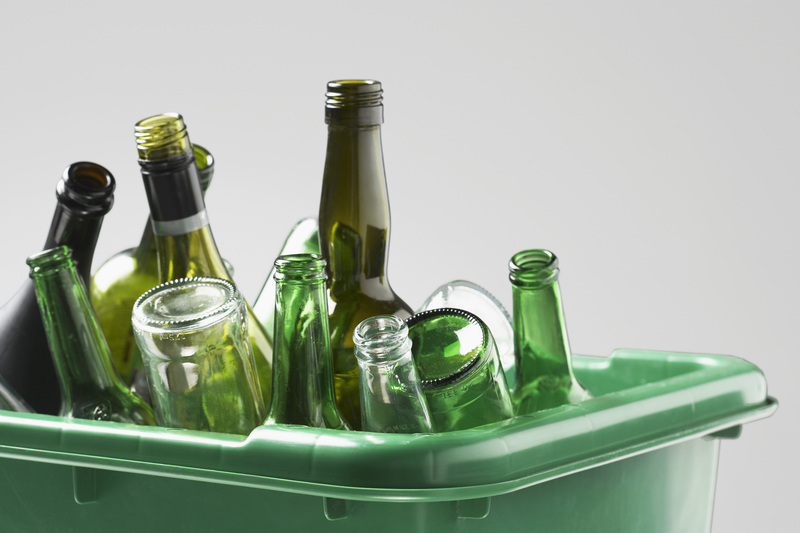Reduce Waste by Finding New Homes for Old Pots and Pans
Every year, millions of old pots and pans end up in landfill, contributing to the mounting waste crisis challenging our planet. But what if there were more sustainable and impactful ways to deal with your unwanted cookware? Reducing waste by finding new homes for old pots and pans is not only environmentally responsible, but also offers opportunities to help others, showcase creativity, and reimagine sustainable living. This comprehensive guide explores multiple avenues to give your used cookware a fresh start while helping the planet and inspiring your community.
Why Rehome Instead of Throwing Away?
Before you pitch your battered saucepan or rusty skillet in the trash, consider the environmental ripple effects. Disposing of old cookery items typically means they are destined for landfill, where materials such as non-stick coatings, metals, and plastics can leach harmful substances or take centuries to decompose.
- Environmental Impact: Old pots and pans can release toxins and occupy valuable landfill space.
- Resource Conservation: Every item kept out of the waste stream preserves raw materials and energy.
- Helping Others: Your gently used cookware might be a treasure for someone setting up a home on a budget.
- Encouraging Sustainable Habits: Finding new homes for your cookware inspires others to consider waste-reducing practices.
Repurposing, Donating, and Upcycling: Different Ways to Give Old Cookware New Life
Don't let your old pots and pans collect dust or clutter landfills. Here are some fascinating ways to reduce waste by rehoming used cookware:

1. Donate to Charitable Organizations
Perhaps your gently used pots and pans are still functional but you're simply upgrading your kitchenware. Donating is one of the best ways to reduce waste with old cookware. Many individuals and families cannot afford new kitchen supplies and would benefit from your donation.
- Local Charities: Organizations such as Goodwill, Salvation Army, or community-run thrift stores frequently accept pots and pans in good condition.
- Homeless Shelters & Transitional Housing: Facilities that help people move from homelessness to permanent housing often require supplies like cookware to establish their clients' new kitchens.
- Churches & Community Kitchens: These establishments regularly organize donations for refugees, new immigrants, college students, or disaster victims and may appreciate gently used pots and pans.
Tips for Donating Your Cookware
- Cleanliness: Wash and thoroughly dry your items.
- Condition: Avoid donating cookware with heavy rust, loose handles, or damaged non-stick surfaces.
- Paired Sets: If possible, donate together with lids.
- Call Ahead: Check with the organization about their current needs and donation policies.
2. Offer Cookware on Online Giving Platforms
The digital age has made finding new homes for old pots and pans easier than ever.
- Freecycle: This grassroots nonprofit movement helps people give and receive goods for free in their own towns. Simply list your items, and interested parties can arrange pickup.
- Facebook Marketplace and Buy Nothing Groups: Many communities have specific groups dedicated to zero-waste living and sharing surplus household items. Post photos and descriptions of your old pans to find a taker.
- Craigslist's Free Section: Another viable place to list old cookware for free pickup.
*Offering pots and pans online not only reduces waste, but also connects you to neighbors and local families who may need exactly what you have.)
3. Gift to Students or Those Setting Up a Home
College students, young adults, recent graduates, or anyone moving into their first apartment often need basic cookware. Consider compiling a starter kitchen kit:
- Medium pot
- Small saucepan
- Large frying pan
- Lids
- Baking sheets
Tip: Presenting pots and pans as part of a housewarming gift adds a personal, useful touch while encouraging resourcefulness in the recipient.
4. Sell Usable Cookware at Garage Sales or Flea Markets
If your pans are in excellent condition or belong to reputable brands, setting up a garage sale or a booth at a local flea market can be a rewarding choice.
- Quality Sells: Cast iron, stainless steel, and copper cookware can fetch good prices if well-maintained.
- Eco-Conscious Shoppers: Many buyers frequent flea markets looking for durable goods at a fraction of the retail cost.
Selling not only helps reduce kitchenware waste but also puts some cash back in your pocket.
5. Repurpose Old Pots and Pans for Creative New Uses
When cookware no longer serves its culinary purpose, why not unleash your inner artist? Repurposing old cookware creatively keeps items out of the trash and can add character to your home or garden.
Creative Repurposing Ideas
- Planters: Fill a large, deep pan with soil and plant flowers or herbs. Pots with handles make quirky hanging containers for balconies or patios.
- Bird Baths or Feeders: An old pan can easily be converted into a rustic bird bath or feeder when mounted on a stand or hung from a tree.
- Wall Art or Clocks: Paint old pans with bright colors, add clock mechanisms or create a kitchen-themed art installation.
- Organizer for Tools or Supplies: Use deep pots for storing crafting supplies, office materials, or as a catch-all container in your garage or shed.
- Outdoor Lighting: Drill holes in the bottom, add candles or LED lights, and use them for magical upcycled garden lighting.
*Upcycling cookware is a fun activity, encourages creative thinking, and provides a fun weekend project for families striving to live more sustainably.*
6. Recycle Cookware Responsibly
If your pots and pans are unusable or beyond repair, recycling metal is the best option to prevent waste.
How to Properly Recycle Old Cookware
- Check Local Recycling Guidelines: Most municipal curbside recycling programs do not accept cookware, but scrap metal recycling facilities often welcome pots and pans, especially if they are aluminum, stainless steel, or cast iron.
- Remove Non-Metal Components: Detach plastic or wood handles, glass lids, or silicone parts to the best of your ability.
- Contact Facilities in Advance: Confirm what materials your local center accepts. Some may require items to be clean or sorted by metal type.
Pro Tip: Many kitchenware retailers offer take-back programs for old cookware, particularly when purchasing new items. Or, check local zero-waste shops in your area.
7. Use as Emergency Camping Gear or Homestead Tools
Some worn cookware is perfect for rugged outdoor use or DIY tasks. Old pots and pans are handy as:
- Camping gear for boiling water or outdoor cooking
- Mixing paint or other non-food substances for DIY crafts
- Collecting rainwater or storing compost scraps temporarily
Being resourceful not only helps the planet--it saves you money and preps you for unexpected needs.
8. Organize a Community Swap Event
Encourage zero-waste culture in your neighborhood by organizing a cookware swap! This helps individuals reduce kitchenware waste while building a sense of connection.
- Host a "kitchen exchange day" at a local community center.
- Invite friends, family members, and neighbors to bring unwanted pots, pans, and cooking tools.
- Any items not claimed can be donated or recycled responsibly.
A community cookware swap is a fun way to promote sustainability and introduce others to the environmental benefits of rehoming unwanted items.

Conclusion: Small Steps Create Big Change
Choosing to reduce waste by finding new homes for old pots and pans might seem like a small gesture, but as more people adopt these eco-friendly habits, the impact can be profound. Whether you choose to donate, sell, repurpose, or recycle, every piece of cookware sent on to a second life reduces the burden on our planet.
Let's inspire our families, communities, and ourselves to rethink how we handle unwanted household items. You'll be surprised how easy, rewarding, and impactful it is to transform old pots and pans into opportunities for creativity, generosity, and environmental stewardship.
Frequently Asked Questions
-
Can non-stick pans be recycled?
*In most cases, non-stick pans cannot be recycled in curbside programs due to their coating. However, some scrap metal yards will accept them after you remove the handles. Always check with your local recycling facility.* -
Is it safe to use vintage cookware?
*As long as there are no cracks, deep abrasions, loose parts, or exposed lead (common in some vintage enamel ware), and it has been thoroughly cleaned, vintage cookware can be used. If unsure, upcycle for decorative use!* -
What should I avoid donating?
*Avoid donating items that are warped, have peeling non-stick coatings, excessive rust, or broken handles for safety reasons.*
Ready to join the movement?
Start today by reviewing your kitchen cupboards, gather up the old cookware, and choose a sustainable rehoming solution. Remember: Every pot or pan kept out of landfill is a step toward a healthier, less wasteful world!